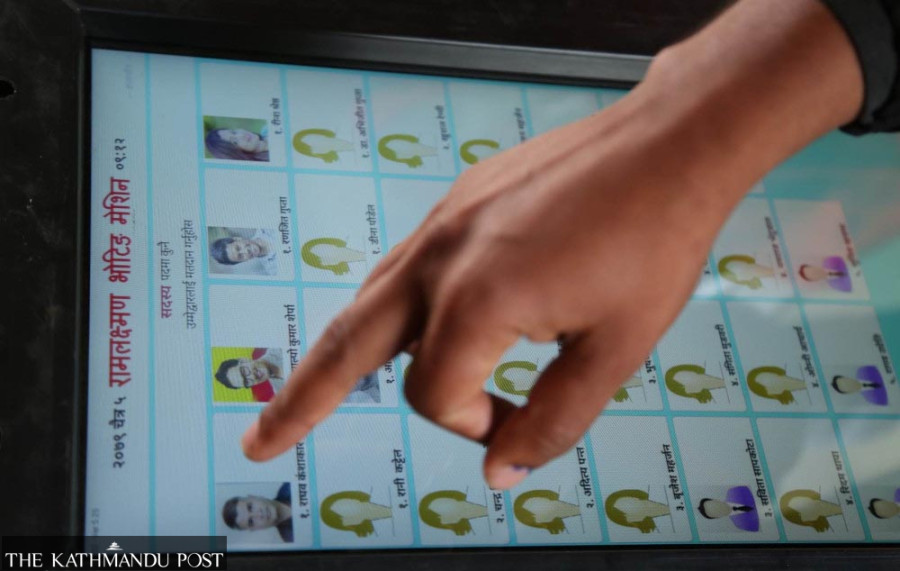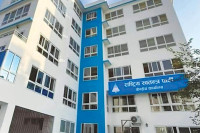Politics
Tribhuvan University students vote to elect their representatives
Preliminary estimates put Sunday’s voter turnout at around 60 percent. Polls postponed in some colleges.
Nishan Khatiwada
The Free Students Union elections in the constituent and affiliated colleges of the Tribhuvan University across the country concluded on Sunday.
The voting took place from 8am to 4pm.
“According to preliminary information, the voter turnout was around 60 percent,” Pashupati Adhikari, chief at the Directorate of Student Welfare and Sports at the university, told the Post on Sunday evening.
According to sources at the university, many student representatives were unanimously elected in more than 150 colleges across the country.
Of the 62 constituent colleges, entire sets of representatives were elected unanimously in two colleges. Four constituent colleges in Kaski, three in Chitwan and two in Birgunj could not hold the elections.
Some colleges had legal hurdles since there were cases pending in courts that made them ineligible to hold the elections.
Of the 22 constituent campuses in the Kathmandu Valley, polls were not held in seven—Amrit Science Campus, Tri-Chandra Campus, Ratna Rajya Laxmi Campus, Bishwa Bhasa Campus, Minbhawan Campus, Ayurveda Campus and Patan Campus.
“Although a few incidents of disturbances were reported in some parts of the country, Sunday’s Free Students Union election was peaceful compared to the previous elections,” said Adhikari.
Students clashed at the Mahendra Bindeshwari Multiple Campus, Rajbiraj leading to a disruption in the vote. The protests by groups favouring and opposing the election, turned into a violent clash. At the Budhinanda Campus, Bajura, the police fired tear gas and fired shots into the air to disperse troublemakers during voting. Similarly, at Doti Multiple Campus, students vandalised the ballot box accusing a rival faction of ballot stuffing.
The Tribhuvan University has 62 constituent and 1,040 affiliated colleges (both community and private).
Vote counting began in most colleges on Sunday evening. The postponed elections are expected to be conducted within a month, according to University officials.
In the Free Students Union elections in 2017, voting took place only in 35 constituent campuses and some 100 community colleges due to disputes between student groups and incidents of violence. The last time student union elections were held across the country was in 2009.
The number of elected representatives in any college union depends on student enrollment in that college. An 11-member committee including the president, vice-president, secretary, joint secretary and treasurer and six members are elected in the colleges with less than 200 students. A 15-member panel is elected, if the number of enrolled students is between 201 and 1,000. The committee has 19 members in colleges having 1,000 to 3,000 students. Likewise, the Free Students Union executive committee has 21 members, if the student enrollment exceeds 3,000.
The vice-president, joint secretary and the other 50 percent members are elected through proportional representation.
The Tribhuvan University has also set an age limit for candidates since 2017. Only those students who are below 28 years are allowed to contest or vote in the elections.
“We have been putting in efforts to revive the Free Students Union and student politics. We believe that there will be elections in all the campuses within a month,” Adhikari added.
As of Sunday evening, the Congress-affiliated Nepal Students’ Union candidate Shyam Raj Ojha was elected as FSU president at the Tribhuvan University central campus, Kirtipur. The college had conducted electronic voting.




 19.28°C Kathmandu
19.28°C Kathmandu















